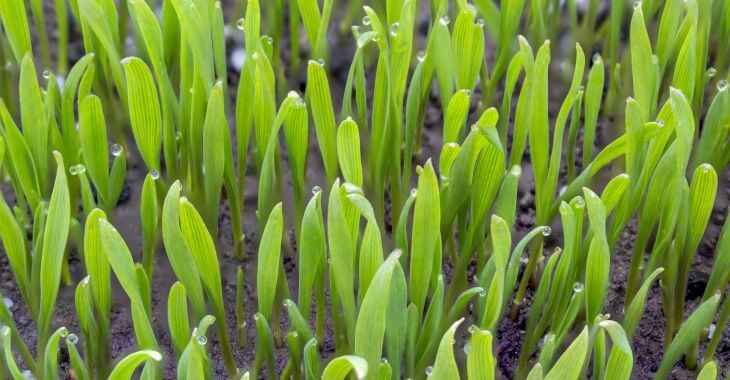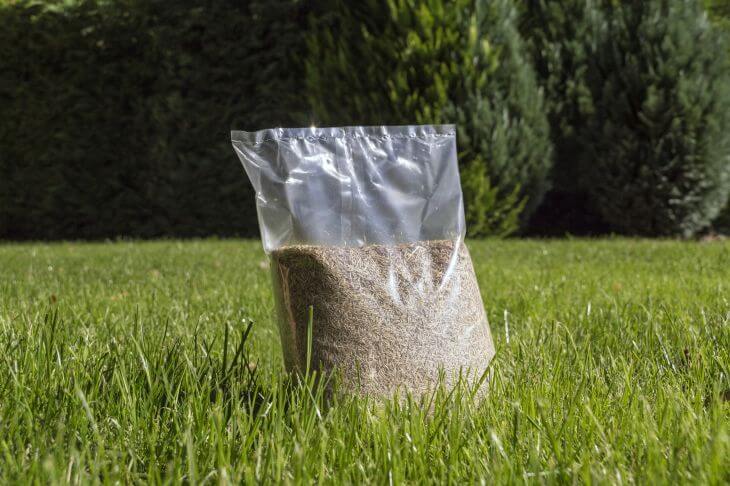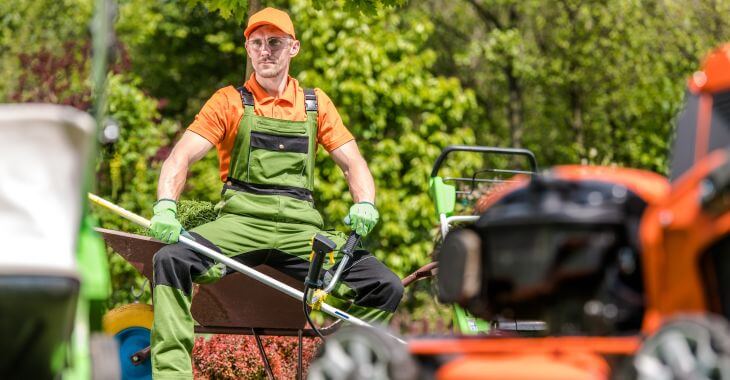How Long for Grass Seed to Germinate?

If you are planting a new lawn or turf on your property from seed, it can be a slow process. It is not as simple as spreading seed on the soil and waiting for your new grass to sprout. There are steps you need to take to ensure you achieve a thick, healthy lawn. Knowing how to stimulate grass seed to germinate quickly can ensure you give your grass what it needs to flourish. Answers to questions like “How long for grass seed to germinate?“ can help you stay on track during the process, which we will cover in this article.
What Is Grass Seed Germination?
Germination is when the hard little grass seeds sprout and begin to grow in the soil. Grass seed can be stored for months or years and never germinate because it does not have the elements it needs to begin to grow. Once it as the right blend of moisture, temperature, oxygen and light, grass seeds can germinate and the seeds you planted can become thick, beautiful turf. How long for grass seed to germinate can depend on all these elements, as well as the type of grass seed you use.
How Long for Different Types of Grass Seed to Germinate?
In general, under the right circumstances, grass seed can take 7-30 days to germinate after it is planted. One factor is the type of grass seed you use. The following are expected germination times for some of the more popular grass types:
- Zoysia. One of the more popular warm-season grasses, zoysia grasses can take longer to germinate, from two to three weeks.
- Kentucky bluegrass. Wonderful for cold regions, Kentucky bluegrass takes about 10-21 days to germinate; some bluegrass seeds may take a full month.
- Ryegrass. One of the faster germinating grasses is annual ryegrass, which can sprout in 5-10 days. Perennial ryegrass germinates even quicker in 5-7 days.
- Bermuda. The warm-season Bermuda grass can sprout in just 3-5 days in ideal conditions, but expect longer if the moisture or temperature are not perfect.
- Red fescue. Expect up to three weeks for cold-season red fescue to sprout out of its shell. Other fescues may germinate in less than two weeks.
It is important to know how long for grass seed to germinate based on the type to ensure you plant at the right time and maintain the right conditions. Keep in mind that grass seed does come with a “best used by” date – the germination rate goes down after that date has passed. Planting fresh seed while following the recommended preparation will give you the best results. You want to create the perfect conditions to ensure your seed germinates before it erodes, or it becomes a meal for local birds.
Conditions for Faster Grass Seed Germination
You can help your grass seed germinate faster by providing it with everything it needs to sprout. While each type of grass may be slightly different in the temperature and moisture it needs, there are some general rules to follow to allow for efficient germination.
- Soil Temperature
- Grass seed will not germinate or grow if it is too cold. Soil temperatures should be at least 45-55 degrees for cold-season grasses and 55-65 degrees for warm-season grasses. Keep in mind that soil temperatures are lower than air temperatures, so the air temperature should be higher.
- Moisture Levels
- Grass seed needs moisture to germinate, but too much water will suffocate new sprouts. It is important to keep soil moist, but not saturated, to allow seeds to germinate quickly and sprout up through the soil. Follow the watering recommendations for your grass seed.
- Oxygen
- Compacted or drenched soil can reduce the oxygen levels needed for a seed to germinate. Planting grass seeds in loose, moist soil and avoiding heavy watering can ensure your seeds get the oxygen they need.
- Light
- While grass seeds can germinate without light, the sprouts will need light to grow. The seed sprout can only grow so much without light. Planting seeds too deep will make it too difficult for the sprouts to break the surface to get the light they need. You only want enough soil to keep them from blowing or washing away.

Once your grass seeds begin to germinate, you will need to follow the instructions for watering and fertilizing to nurture its growth. It is important to prevent foot traffic from interfering with the baby grass sprouts and give your grass a chance to grow deep, healthy roots.
How long for grass seed to germinate can depend on many different factors, from temperature and moisture to how you prepare the soil. You can improve how quickly your grass sprouts germinate by planting at the right time of year with ideal soil conditions. For more tips on maintaining healthy new grass, talk to your local landscaping professional.


